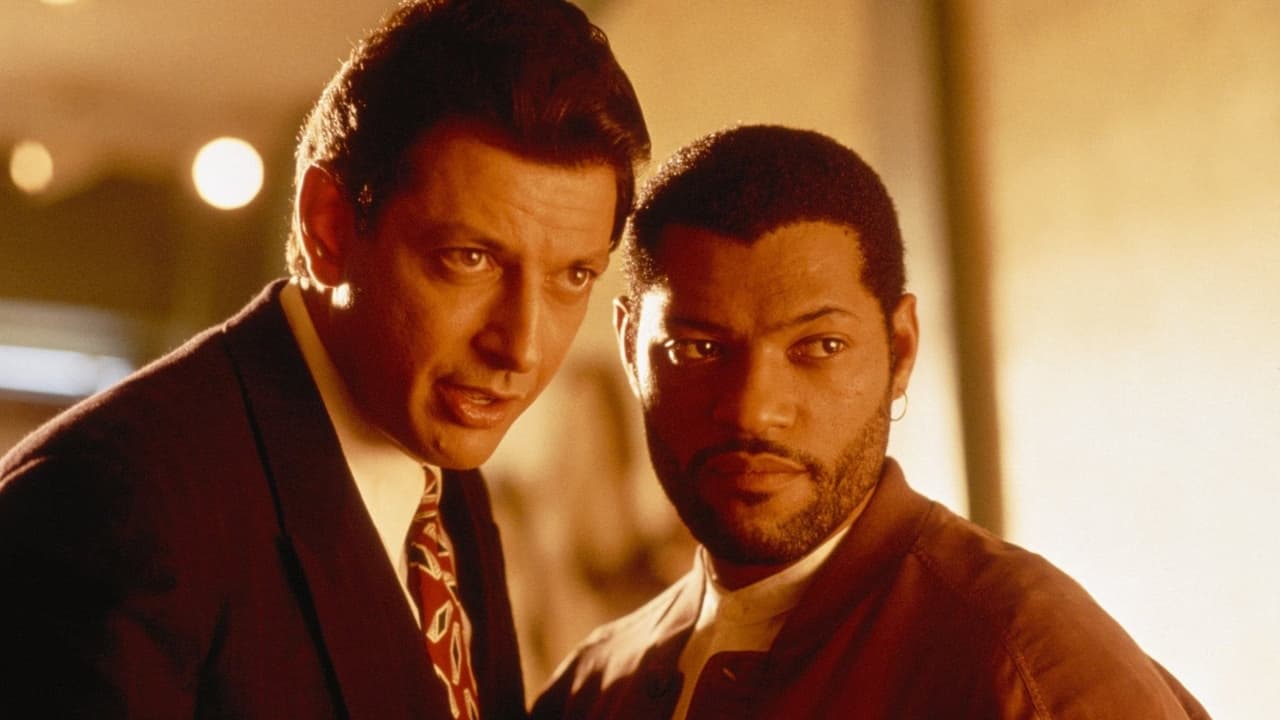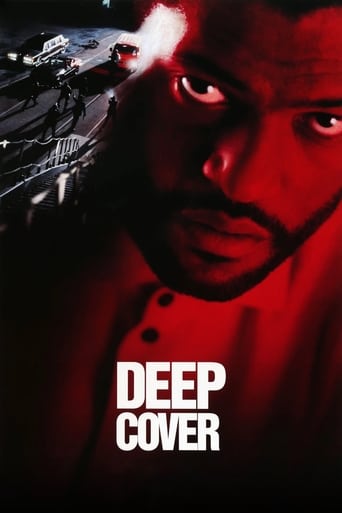

Tough, cynical, intelligent and ahead of its time. 10 years before The Wire looked at the US War On Drugs in a similar fashion, to widespread critical acclaim, this little seen gem made most of the same points and was largely ignored. Laurence Fishburne gives a true tour de force of a performance as the troubled main protagonist- an angry, flawed, violent but ultimately deeply moral young cop. The supporting cast are equally impressive- and like all great noir films, each character is realistically flawed.....with the exception of Clarence Williams' honest detective (who winds up paying the ultimate price for being a good man in an evil, corrupt world in a devastating climax) there are no heroes here, just different shades of bad- I've rarely seen a film with such a cynical view of the police/law enforcement, and the villains- from Jeff Goldblum's greedy and amoral lawyer to Gregory Sierra's truly terrifying mid level dealer- are shown as even worse. What's most striking though, is the films uncompromising cynicism. It's explicitly stated that Guzman, the main kingpin, is and shall remain untouchable, because he's a close friend of the then president George Bush Snr! And, in perhaps the films most knowing line of dialogue, when Goldblum's character states to the Latin American Guzman "there's no black, Hispanic or white anymore.....just rich and poor, and we're all rich so we should be on the same side"- well doesn't that say it all- not just about drugs and the war against them, but about unfettered free market capitalism in general? An outstanding film- please see it if you like your thrillers tough, intelligent and thought provoking.
... View MoreYes, it was somewhat violent at times, but 15 years later (post-Tarantino) it's nothing a woman who likes an intelligent, extremely well-acted, written and directed movie can't handle. I'm a late convert; I used to avoid movies that I thought might have too much violence. Considering some of the "torture porn" movies of the last few years, this one's easy on the eyes.That being said, this is now one of my all-time favorite movies. I'd recommend it to anyone who enjoyed "New Jack City" plus anyone who's a fan of Mr. Laurence Fishburne and/or Jeff Goldblum. I loved the occasional poetry and especially the relationship between Fishburne's character, the undercover cop, and Clarence Williams III's character, a street cop. It was almost like a father-son type of interaction.Don't believe the few naysayers, SEE THIS MOVIE!
... View MoreHard-hitting and stylish, this film quickly moves beyond the usual notion of 'undercover drug work' into an altogether more practical & unpleasant understanding...The film is well-paced and, most appropriately for this year, introduces a female art-gallery owner as it develops a relationship subplot. As the story progresses, the film breaks boundaries further & demonstrates an exceptionally sharp sensibility -- but fairly much returns to the standards for the climactic scene.While not a Scorsese or Tarantino masterpiece, this film is very highly recommended.
... View MoreThis was really a perfect movie for this genre of film. The understated quality acting of Lawrence Fishburne is superb. I really enjoyed seeing the main character's downward spiral. There is excellent character development through the plot which is not the usual cliché. The acting all around is very high caliber, and the tone and pace of the film (directing) is spot on. Highly recommended, highly watchable, one of my top ten favorite films. Films are always better when there is dramatic conflict, and seeing the main character torn apart slowly provides compelling cinema. More films should be made like this! (with less explosions / body counts etc...) As a frame of reference - I am a huge fan of the early James Bond (connery) films, and can't stand the new ones...
... View More